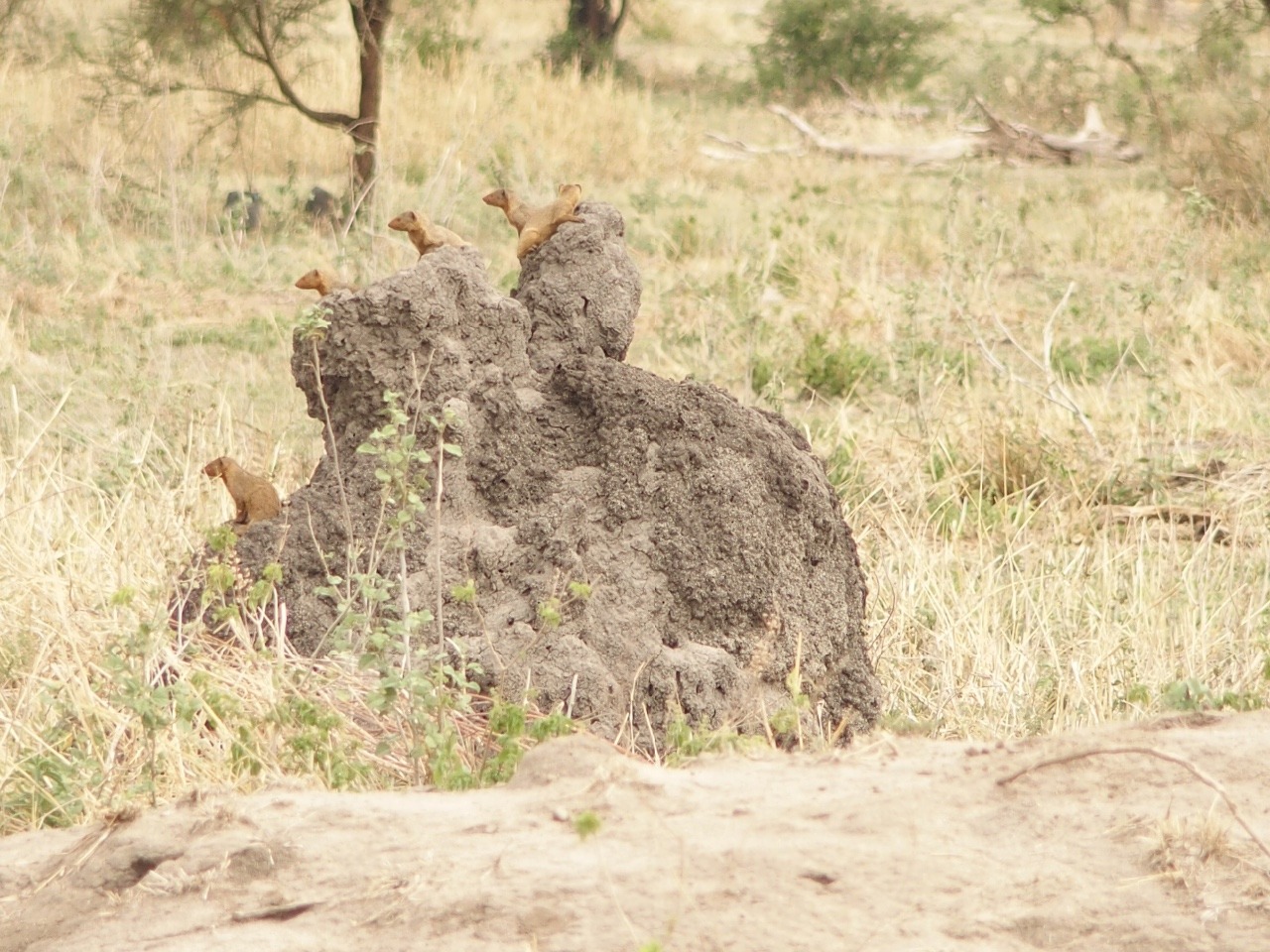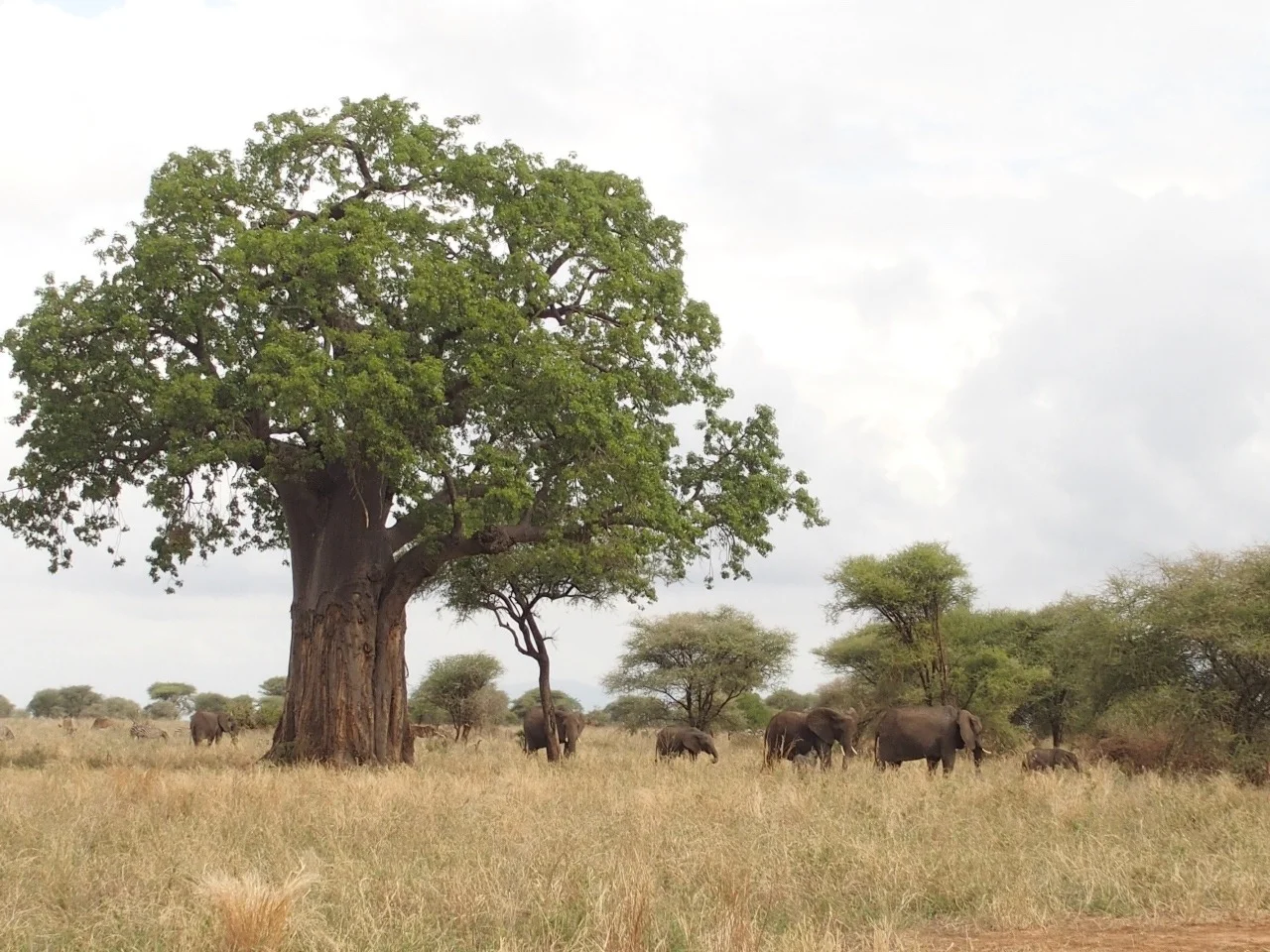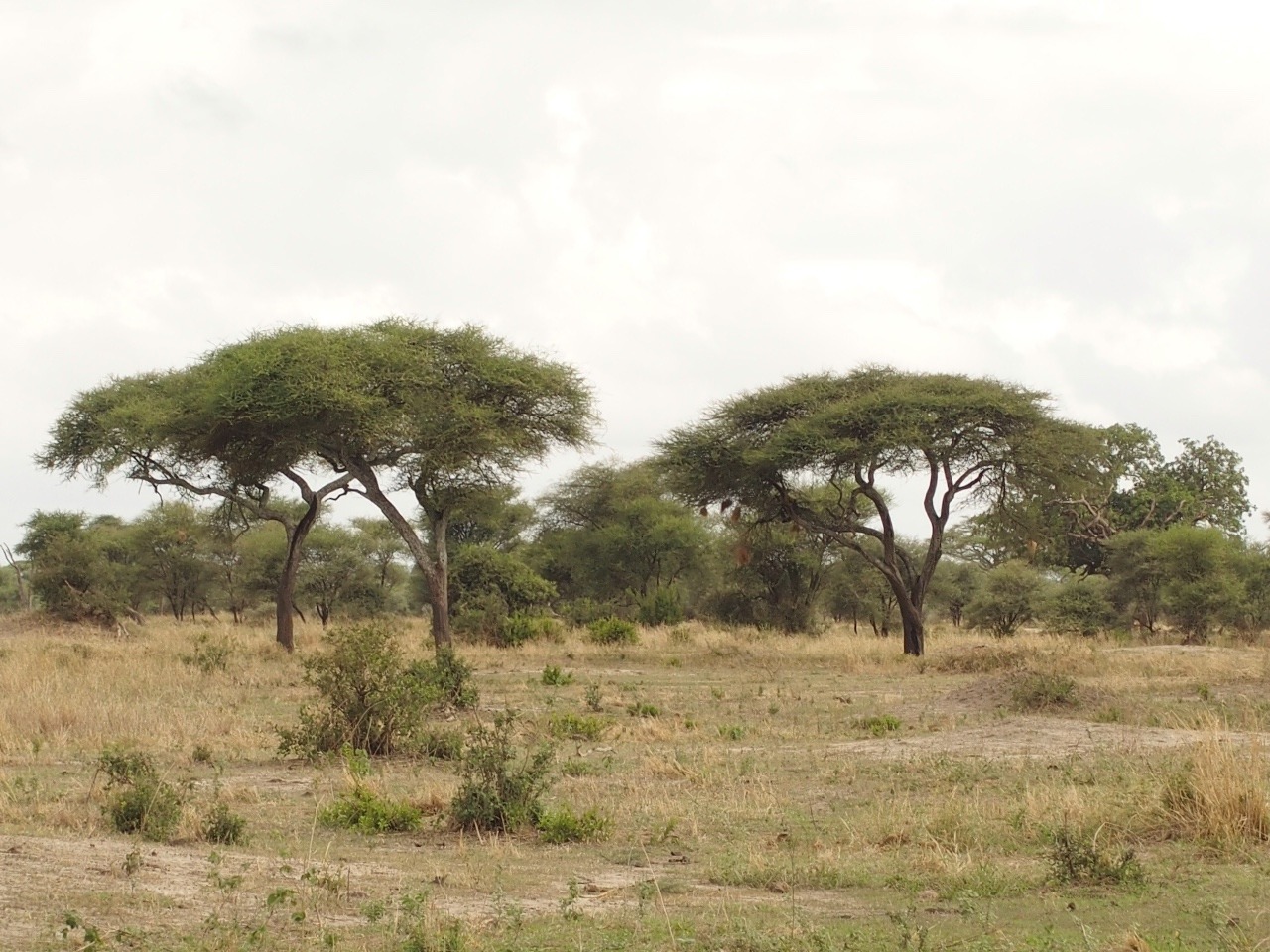Lake Manyara National Park, Tanzania
One of the joys of camping - albeit in the rather upmarket way we are here - is the sense of being at one with nature. The exotic birdsong that wakes you up, the rain drumming on the roof of the tent and the sight (I think) of two lions slinking by at 6am.
However the birds don't wake me, as the drumming of rain on the thatched roof is matched by a grumbling of stomach well before dawn and the onset of Delhi belly. I only manage a few hours sleep between visits to the bathroom and breakfast is a pitiful affair as I attempt to get food inside me for the day ahead.
The breakfast setting is glorious, watching flamingos on Lake Manyara and wildebeest at the camp's watering hole, but I only really manage a couple of Imodium and a cup of tea before we set off at 7.30. Coman is similarly wiped, the antibiotics, chest infection and non-stop travel taking their toll.
Azka drives us the few miles from Maramboi to Tarangire National Park and we start the first of our Tanzanian safaris, the pair of us much quieter than normal.
Tarangire is different again to our previous locations, with a feel and landscape of its own. Featuring mainly grasslands, the entire reserve is full of trees, an incredible variety of shapes and sizes on display as we drive along. Huge baobabs abound, with hollow trunks and exterior bark stripped clean by hungry elephants, alongside umbrella acacias and tamarind trees, amongst many others. It means the familiar animals we see are all set against new backdrops.
However it also means there are lots of insects, with dark blue traps for tsetse flies hanging at regular intervals to combat the spread of the sleeping sickness they transmit. At one stage a large fly lands on my back and I feel a sharp but mercifully fleeting sting. Azka reassures me it's not a tsetse fly as I'd be in excruciating agony if so. We quickly spray ourselves head to toe with jungle strength insect repellent.
The trees also allow for different animal behaviours, most evident when we spot a leopard lying on the branch of a baobab, silently observing the nearby zebra and impala. We watch for almost fifteen minutes before she jumps down and runs towards them, her attack foiled by the intervention of a male ostrich who flares out his feathers in a threatening display that sends the leopard off in the opposite direction.
Another tree hosts a troop of baboons, stripping it clean of wild fruits while later we see dozens of vultures sitting in dead trees, drying out their feathers after bathing in the river.
The Tarangire river is seasonal and almost completely dry currently but by late March it will be fiercely flowing, a huge life-giving torrent running through the park. At a stunning lookout point we gaze down below to where the permanently flowing underground section rises above the surface and watch some of the park's 3800 elephants drinking their fill.
We're standing so engrossed that a nearby crashing sound takes us by complete surprise, followed by the appearance of a number of elephants right beside us. Thankfully they're more interested in eating the trees than charging us, and we're left unscathed by the mighty beasts.
Returning to the vehicle we drive on round the reserve seeing a wide variety of wildlife, including hornbills, giraffes, warthogs, wildebeest, waterbuck antelope and both dwarf and banded mongooses. Having the jeep to ourselves on this private leg is rather wonderful after the shared group experience in Kenya. Being able to move around without other people aboard means we get perfect views of everything, and when we stop we have complete silence, rather than Lee Chen's excitable commentary and frequent hacking.
The weather is cloudy and cool after yesterday's ferocious temperatures and the distant rumbles of thunder herald a heavy downpour of rain which lasts for almost an hour. Watching elephants getting soaked to the skin, and glistening as they walk, is a wonderful sight.
Unfortunately we're both quite exhausted with tiredness, headaches and dehydration so after an early picnic lunch we head back to a deserted camp for a siesta by the pool before meeting Elli, a Maasai guide, for the late afternoon walking safari down to the lake which we had missed yesterday.
It's an incredible experience, not least because the 90 minute walk is pretty much the only exercise we've done in over a week, having spent every day either sat down travelling or being fed. The Christmas bulge has only really been countered by the traveller's diarrhoea that has afflicted us both.
Elli, a trusty spear to hand for protection, takes us both out across the savannah amongst the grazing wildlife, and occasional tortoise, showing us their various droppings and explaining their medical uses. Who knew zebra poo is the perfect decongestant when burnt and inhaled?!
After 30 minutes walk we come to the tilapia-filled lake, the ground too swampy to get to the water's edge, but ahead of us are pelicans and flamingos in vast quantities. The sound - and smell - of them both is quite intense. Whilst the pelicans are relatively close, the flamingos are still some distance out, a pink shimmering haze as far as the eye can see numbering hundreds of thousands. We clasp our binoculars to our eyes and watch in amazement a sight we've only seen on documentaries before. It's incredibly special.
The sun is setting as we walk back, Elli showing us an abandoned ostrich egg in the grass, and once safely back at camp we have a drink by the pool as the dusky sky turns fiery and golden. It's the perfect end to the day and with dinner done we retire for an early night and some much needed sleep.
Tomorrow we're off to Ngorongoro.










































